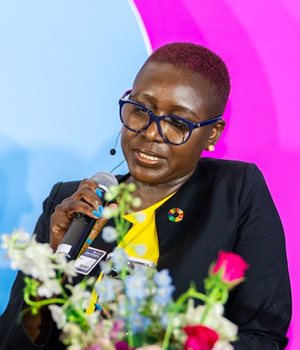
Dr Achieng Ojwang, executive director of UN Global Compact Network, South Africa
In 2015, UN member states ratified the SDGs, which include SDG 5, with a commitment to achieving gender equality by 2030. Ojwang highlighted the essential components of SDG 5, which encompass ending discrimination against women and children, eliminating all forms of violence, ensuring women's full participation and equal opportunities, ending forced marriages, promoting equal pay, universal access to sexual and reproductive health, and adopting sound policies and regulations.
Ojwang stressed that achieving SDG 5 is of utmost importance, both on a global scale through the UN Global Compact and within South Africa's corporate landscape, where UN Global Compact Network, South Africa, operates as a corporate sustainability platform. She referred to gender equality as a "low-hanging fruit" and challenged businesses, stating: "If we wanted to reach gender equality, we could do so within the next six years."
However, Ojwang expressed concern that, globally, progress toward SDG 5 is off track. "If you look at the pay gap, women are still earning less than 23% on aggregate compared to men," she noted. Moreover, Ojwang highlighted the disparities in procurement, where only 1% of the $11tn global procurement spend goes to women-owned businesses, despite one out of every three businesses globally being owned by women.
In the context of South Africa, Ojwang revealed that only about 6% of the government's annual spend of approximately R74bn goes to women-owned businesses. Furthermore, she cited a recent study showing that women hold only 35% of board positions in South Africa's top 40 companies. The study revealed that only one company among the top 40 has reached parity at both the board and executive levels. She emphasised that, in the current landscape, only four of these top 40 companies have women CEOs.
Ojwang called for immediate action to accelerate progress towards gender equality. "Achieving gender equality is not only a moral imperative but also makes good business sense," she urged, emphasising that diverse and inclusive companies tend to perform better financially.
